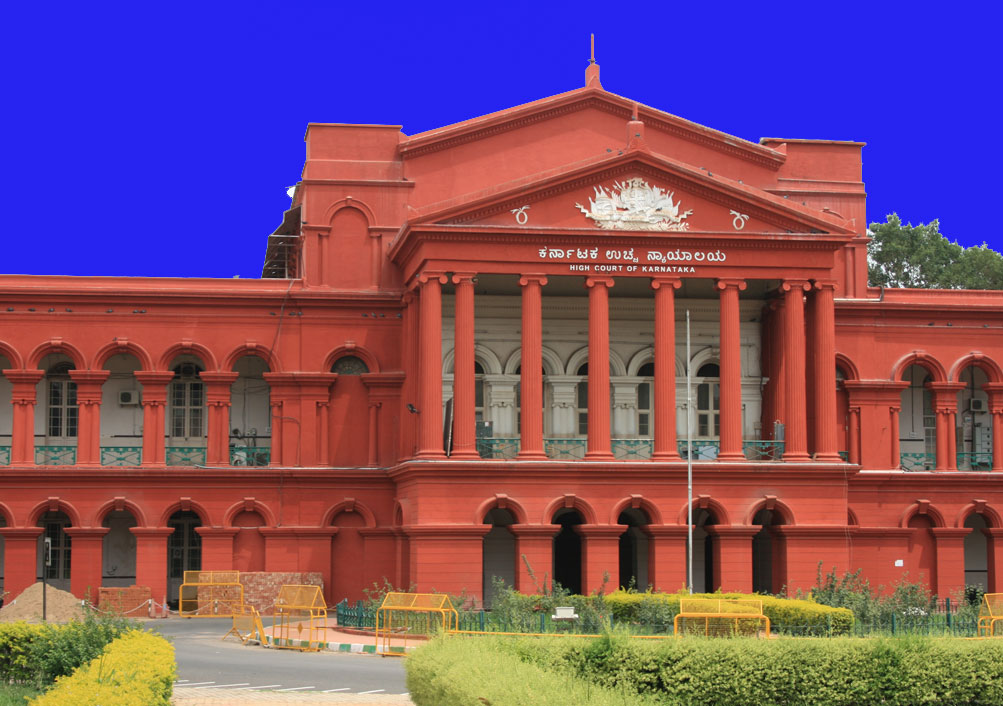Article 226 can’t be invoked to enforce private contractual rights; purchaser can’t claim vested right over encroached land: Karnataka HC

Read Judgment: M/s Chamundeswari Build Tech Private Limited vs. Government of Karnataka & Ors
LE Correspondent
Bengaluru, August 27, 2021: The Karnataka High Court has ruled that the petitioner company being in illegal possession and enjoyment of government lands for well over two decades, entails consequences like fine and penalty as no vested right over the encroached land is conferred upon it.
The Single Bench of Justice Narendar observed that the exercise pertaining to fixation of the market rate of the remaining lands was to commence after the excess land was handed over and the petitioner offered to hand over the excess land only.
Further, the petitioner having made the deposit voluntarily pursuant to recommendation by Deputy Commissioner, and the deposit being on the insistence of the petitioner, the consequent direction to receive it can by no stretch of imagination be equated with an “acceptance”. It cannot be gainfully argued that the provisions of Article 226 of the Constitution of India can be invoked to enforce private contractual rights, added Justice Narendar.
The observation came pursuant to a petition that prayed for quashing of the proceedings, whereby the petitioner company was called to deposit an amount within one month failing which, the petitioner’s occupation would be concluded as unauthorized occupation and action will be initiated to take possession of its lands.
Going by the background of the case, with the object of developing a world-class golf course under the banner of ‘Eagleton Golf Resort’, an extent of nearly 400 acres of land was purchased by the petitioner in Ramanagara District, and got its project registered with the State Level Tourism Industry. Since some extent of government land came to be encompassed by the lands purchased by the petitioner, the Karnataka Industrial Area Development Board Authority (KIADB) acquired and allotted some piece of land to the petitioner.
Later, the petitioner was served with an Eviction Notice issued by the jurisdictional Tahsildar, calling upon the petitioner to vacate and hand-over possession of lands reserved for public purpose.
When the petitioner approached the High Court praying for quashing of the Eviction Notices, the Co-ordinate Bench observed that the petitioner had altered the nature of the lands reserved for public purpose and directed action against certain government officials who had facilitated the encroachment by the petitioner.
The second writ petition also came to be rejected holding that the petitioner was an unlawful occupant of the government lands deemed it a fit case requiring invocation of provision Section 94 (3) of the Karnataka Land Revenue (KLR) Act for recovery of damages for the unauthorized use and occupation of lands.
The Coordinate Bench also rendered a finding that the petitioner was putting the lands in its unauthorized occupation to commercial use and was earning revenue, and made scathing remarks against the conduct of the KIADB to the extent of observing that it was a clear case of legal malafides and hence, directed the State Government to initiate disciplinary actions.
The matter ultimately reached Apex Court, where the petitioner was directed to hand–over excess land and in case of failure of the petitioner to make the subject payment, it would be open to the Government of Karnataka to resume the land in question.
After considering the relevant evidences and facts, Justice G. Narendar opined that the market price or the market value is interpreted to mean the price a willing purchaser (petitioner) is willing to pay and a willing seller (State) is willing to accept.
If that be the undisputed position in law, then the onus was on the petitioner to state in categorical terms, based on verifiable data, the prevailing market price or in other words the prevailing market value of the lands it had encroached upon and put to commercial use, added the High Court.
Justice Narendar went on to observe that the factum of encroachment of Government lands and the factum of putting them to commercial use is admitted and it is not the case of the petitioner that it is carrying on any charitable or philanthropic activities over the said land.
If that be so, the onus was primarily also on the petitioner to quote and demonstrate the market price. The petitioner having miserably failed to do so, it is not open for the petitioner to come running to the Courts and complain about the methodology or the parameters adopted by the respondents to calculate the price, added Justice Narendar.
“The petitioner having maintained a resounding silence on this critical and substantial aspect of the matter, cannot be permitted to ‘cry wolf’. The petition does not disclose any market data which could be construed as the basis for the petitioner to complain against the price quoted by the respondents,” opined the High Court.
Sign up for our weekly newsletter to stay up to date on our product, events featured blog, special offer and all of the exciting things that take place here at Legitquest.




Add a Comment